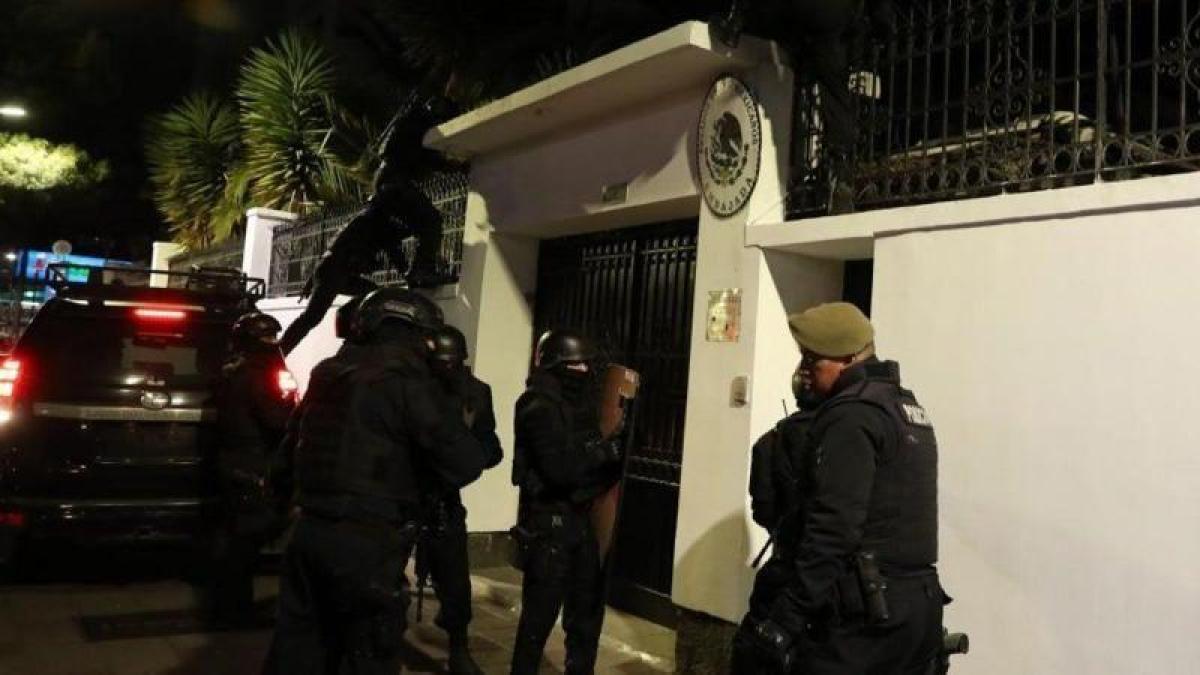Nurses around the country sent letters describing the grievances and exhaustion of their work. Based on them, director Susanna Helke directed the documentary The Relentless Going – Songs of Care Work, which will be seen today as the opening film of the Docpoint festival.
Oh, right we are already in the care of saving for the elderly, documentary director Susanna Helke remembers thinking when he visited the City of Helsinki Remote Care Center.
The room, reminiscent of a landscape office, was divided into small booths with screens, each with a caregiver talking on a video call with an elderly person living at home. One asked if the caregiver remembered taking their medication, another was pulling a gym via video, and a third was asking what the elderly person had enjoyed for lunch today.
“I couldn’t have imagined that such a place existed. It looked like a workplace for telemarketers. However, the nurses showed that they were tense to care for every muscle, ”says Helke.
The scene filmed at the Remote Care Center also ended in a documentary to be seen today as the opening film of Helke’s Docpoint festival. Relentless Going – Songs of Nursing. The “Satirical Song Film” depicts the crisis of care for the elderly and the harsh everyday drilling of caregivers, where time is never enough, but where there is also a lot of human warmth involved. Sometimes it cries, sometimes the absurdity of situations makes you laugh.
Helken together Markku Heikkinen the documentary he wrote with was not easily created, although breaking the ethos of the welfare state has been thought of by Helke for a long time.
He lived for years in the United States, from which the Nordic social model looked admirable. But when he returned to Finland in 2010, he was surprised at how it was treated here.
“The welfare state was like an old sofa thrown in the corner that we wanted to get rid of.”
The subject was huge and it was particularly difficult to figure out how social developments and mindset changes could be made visible in a documentary film, as these are very abstract, difficult and invisible things.
“No sane person makes documentaries. I dare not even say out loud the amount of unnecessary work involved in making films. Only a small part of the collected material ends up in the final film, ”says director Susanna Helke about her profession.
Helke and Heikkinen did a huge amount of background work and, among other things, followed the “sote circus” for a long time until they realized that the collected material was not working. But when caring for the elderly plunged into crisis in 2019, Helke knew it had an issue to address.
“I wanted to deal with the absurdity of the situation. There was talk of a sustainability gap and the elderly mountains. It was the kind of boring, bureaucratic mummy that means nothing but is extremely violent at the same time. It’s scary to listen to how big generations are now hanging out about themselves, that there are too many of them, ”says Helke.
He points out that the savings have affected the most vulnerable and vulnerable groups, such as care for the elderly and child protection.
“Already 65% of care for the elderly has been transferred to private service providers, and the figure is even higher in child protection.”
Relentless going for the documentary, Helke asked the elderly caregivers working in the field to share their work. He received a huge number of letters that shone through exhaustion and malaise.
Someone told me how to calculate the transition time from one place to another in the caregiver optimization system and is not able to move fast enough. The caregivers were left in a wheelchair for a day and if the caregiver complained of understaffing, he was not qualified. The film shows how sound is not made to work during a remote lunch hour for the elderly and how new intelligent applications such as care robots are being brought into nursing homes.
“I’ve watched many times from the side when medication errors happen. It was forbidden for relatives to say that it is done understaffed, ”sings the choir of tired caregivers in a documentary that joyfully mixes different genres. The songs based on the nurses ’letters and the music for the entire film have been composed Anna-Mari Kähärä.
In Susanna Helke’s documentary, women in the care sector sing about their everyday, absurd and cruel experiences.
Most caregivers did not dare to share their experiences with their own names or faces. That is why Helke wanted a collective choir with a greater probative value for the film instead of an individual case.
“Nurses’ fear speaks of systematic corrosion; about how deep in all thinking it is. And because ethical and people-friendly individuals apply to the industry, they are exhausted when they constantly have to transcend the boundaries of their own ethics. They cry after a day of work because they had to leave the distressed elderly person alone in bed waiting or the conversation was completely interrupted. ”
But there is the film also has heat. It meets people who have long worked with elderly people with memory problems Tiina, who was the first to point out the shortcomings of nursing and was not afraid of the consequences.
“Through Tiina, the viewer gets to see what care is all about. It does not need innovation and bullshit, but a presence. He is at work as an artist and approaches the elderly through humor. When he throws a flap with an elderly person with a memory condition, he treats them as peers. Humor is the language of equality, ”says Helke.
As another “hero of ethics and integrity”, Helke wanted to introduce Emeritus Professor of Social Work Marja Vaaraman From the University of Eastern Finland. For decades, Vaarama has followed the relentless line of savings and privatization measures in the care of the elderly, and has been involved in making care work recommendations and legal preparations. She hopes that our country’s decision-makers will listen more to feminist economists and that the trade union movement in the female-dominated sectors will be as strong as in the male-dominated sectors.
“Vaarama represents the fate of research data and researchers. There is information in this world, but scientists are not listened to, ”says Helke.
The main characters in addition, the documentary follows the privatization of the elderly care in the municipality of Kaavi, as Helke wanted to include a story that would show the consequences for economically disadvantaged remote municipalities.
“I have to say we didn’t get there easily because the mayor wouldn’t have wanted our filming team to get there at all,” Helke says.
The choir of Kaavav retirees sings about how they are part of the sustainability gap. The songs for Susanna Helke’s documentary have been composed by Anna-Mari Kähärä.
But as with making documentaries often, every hurdle made the film better. When Helke and her group could not follow the municipal council meetings, they had to look for another perspective on the subject. Found Straits, two elderly men and friends whose wives live in a nursing home. The straits go to their wives to sing, and through them the subject comes close to the audience.
“Every elderly person in a nursing home is the most important person, parent or spouse in someone’s life.”
In Helke’s opinion, privatization is a conceptual blunder, as there is really no private care for the elderly in Finland.
“There are only a handful of people in Finland who are so rich that they can really pay for their care themselves. All other private care is actually done with the tax money we pay. And you don’t have to think far when you realize that the only way to make money in the care industry is to save and it will quickly become cruel and cruel. ”
Heavy subjects Helke also had to consider the future of himself and his own parents.
“I don’t want to have anything to do with the equipment when I was old. And I wouldn’t want myself or my parents to snag somewhere in a warehouse where they don’t know what’s going to happen to you next, ”he says.
On the other hand, the meeting of the retirees of the Kaavav ranks also gave the belief that life can also be communal and active.
He hopes his film will spark a debate about the values on which our society is built.
“There are other folk songs than the lack of endurance. I often wonder how there can be such a people who are whipping themselves and talking about government debt as their personal grief. ”
As a small personal expression, Helke intends to stand today at the Citizens’ History, where his documentary will be presented as the opening film of the Docpoint festival.
“We people in the arts have also been squatted enough because of the corona. There is no nation without culture, so I challenge everyone to join the Citizens’ Hall in front of the Parliament House to watch and sing the songs of Hoivatyö. ”
“A Finn can stand on the edge of the forest watching a skiing competition, so why not watch an hour and a half in the open air. Ice fishing overalls only, ”Helke suggests.
The Relentless Going – Songs of Nursing Work will be seen as the opening film of the Docpoint Festival at the open-air screening of the Citizen’s Market Sat 29.1. at 5pm. The event is free.
The film can be viewed online throughout the festival: docpointfestival.fi
#Movie #Care #robots #ghost #caretakers #broken #remote #connections #Susanna #Helkes #documentary #shows #barren #everyday #life #absurdity #care #work #warmth





/s3/static.nrc.nl/wp-content/uploads/2023/09/anp-477650943.jpg)